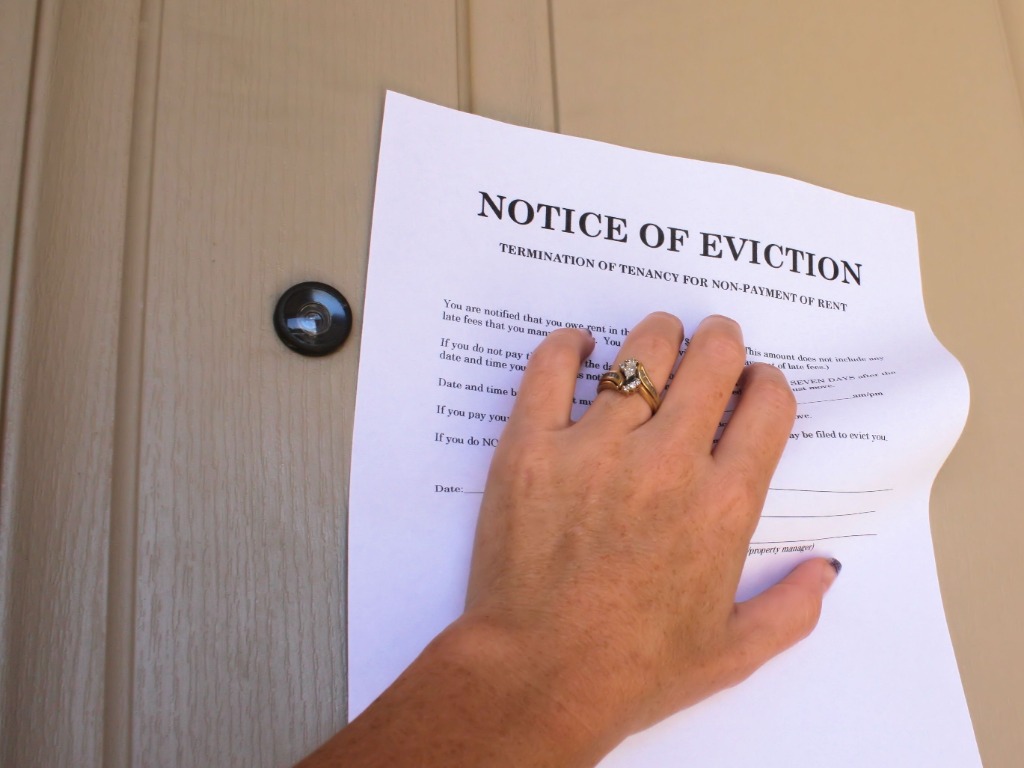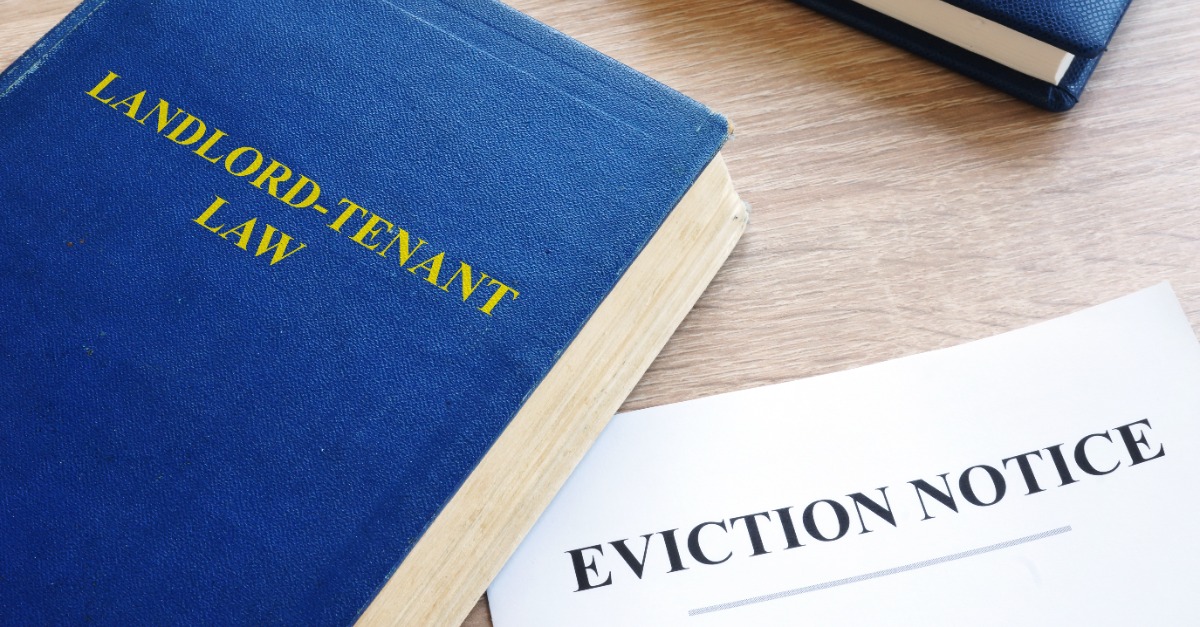Evicting a tenant can be one of the most challenging aspects of being a landlord. However, understanding the legal process to evict a tenant in the UK can help you handle it efficiently and with minimal stress. Whether your tenant has breached their rental agreement or you’re looking to reclaim your property for other reasons, this guide will provide you with a comprehensive overview of the legal process, including the mandatory and discretionary grounds for eviction, and the potential costs involved, while complying with the law.
The importance of knowing the legal process
Evicting a tenant without following the correct legal procedures can result in severe consequences, including hefty fines and potential imprisonment. Understanding how you can evict a tenant is crucial, as it emphasises the importance of adhering to housing laws in England and Wales, particularly the Housing Act 1988.
For Tenant Eviction Services
This comprehensive guide will walk you through the necessary steps, highlight common challenges, and offer practical advice for UK landlords.
Understanding grounds for eviction
Before initiating eviction proceedings, it’s essential to understand the grounds on which you can evict a tenant. It is crucial to identify whether the property falls under assured tenancies or assured agricultural occupancy before serving an eviction notice. The primary reasons include non-payment of rent, property damage, and breach of tenancy agreement terms. Knowing these grounds will help you determine the appropriate eviction notice to serve.
Step-by-step guide to evicting a tenant

Providing proper Notice
To legally evict a tenant, you must serve them with either a Section 8 or Section 21 notice. Here’s the difference:
Section 8 Notice
This notice is used when the tenant has breached the tenancy agreement, such as failing to pay rent (being in rent arrears) or causing damage to the property.
The notice period varies depending on the grounds for eviction but the below is a rule of thumb guide.
- Serious anti-social behaviour – 2 weeks
- No right to rent in the UK – 2 weeks
- Non payment of rent/ serious rent arrears – 2 weeks
- Owner occupation – 2 months
- Repossession by lender – 2 months
Section 21 Notice
This eviction notice is used to regain possession of the property at the end of a fixed-term tenancy or during a periodic tenancy. You don’t need to provide a reason for eviction, but you must give at least two months’ written notice. If a break clause is included in the tenancy agreement, landlords can use it to recover possession before the end of the fixed term, provided the conditions of the break clause are met.
You will be unable to issue a Section 21 notice under the following circumstances:
- Within the first four months of the tenancy agreement
- If you haven’t provided your tenants with copies of the Energy Performance Certificate, Gas Safety Certificate, and the government’s How to Rent Guide
- If you lack the necessary landlord licences
- If you haven’t placed your tenant’s deposit in an approved deposit protection scheme
Apply for an order of possession
If the tenant does not vacate the property after receiving the notice, you can apply for an order of possession. A notice to quit outlines the legal requirements and timelines for notifying tenants to vacate the property. There are two types:
- Standard possession order: Used when you’re claiming unpaid rent. It involves a court hearing, and the cost of applying is £355.
- Accelerated possession order: Used when you’re not claiming unpaid rent. This process is quicker as it usually doesn’t require a court hearing. The application cost is £275.
Apply for a warrant of possession
If the tenant still refuses to leave after the possession order, you can apply for a warrant of possession. This allows bailiffs to evict the tenant. The application cost is £130.
Preparing for and handling challenges
Evicting tenants is not always straightforward. To evict tenants properly, it is crucial to follow the correct procedures to avoid potential legal ramifications. Tenants may contest the eviction or cause delays. Be prepared by gathering all necessary documentation and evidence to support your case. Once a decision has been made, communicate the eviction date as soon as possible to allow the tenant time to make arrangements. Most importantly, stay calm and professional throughout the process to avoid escalating tensions.
Post-eviction steps and lessons learned
Once the tenant has vacated the property, there are several post-eviction steps to consider. Inspect the property for any damages and make necessary repairs. Reflect on the eviction process and identify any lessons learned to improve future tenancies.
The role of county court bailiffs and high court enforcement officers
County court bailiffs and high court enforcement officers play a critical role in the eviction process once a possession order has been granted. If a tenant refuses to vacate the property by the specified date on the possession order, landlords can seek the assistance of these officials to enforce the eviction. County court bailiffs are typically used for standard possession orders, while high court enforcement officers may be engaged for expedited cases requiring quicker action.
Once involved, these officers have the authority to enter the property, usually accompanied by police assistance if necessary, to remove the tenant. They can break in if the tenant is not present but must follow specific legal protocols. It is essential for landlords to understand that the officers cannot use force against tenants who are present or who refuse to leave voluntarily, ensuring that the eviction process remains within the boundaries of the law. Their involvement signifies the final step in legally reclaiming possession of the property, allowing landlords to move forward with their plans for the premises.
Eviction services offered by security companies
Security companies specialise in providing tailored eviction services to landlords, ensuring compliance with legal processes while maintaining safety and order. These services typically include pre-eviction consultations, where security professionals assess the situation and suggest the most appropriate course of action. They can also accompany landlords during the eviction to ensure that the process is handled safely and without confrontation. By employing trained security personnel, landlords can mitigate the potential for conflict, as these professionals are experienced in managing difficult situations and can help maintain a calm atmosphere.
Compliance with legal eviction processes
One of the key advantages of using a security company is their understanding and adherence to legal eviction processes. These firms ensure that all eviction activities align with the law, preventing any actions that could lead to legal repercussions for the landlord. They work closely with landlords to review the necessary documentation, such as possession orders, and confirm that all proper notices have been served according to regulations. Their expertise minimises the risk of errors that could derail the eviction process or result in costly delays.
Benefits over county court bailiffs and high court enforcement officers
While county court bailiffs and high court enforcement officers are essential in executing evictions, security companies offer unique benefits that can enhance the overall experience. For instance, security personnel can provide a quicker response time, often being more readily available than court-appointed officers. Additionally, security companies are typically more focused on conflict resolution, making them adept at defusing potentially volatile situations during the eviction process.
Moreover, engaging a security service can offer a more discreet and private approach to evictions, as opposed to the public nature of bailiff interventions. This can help landlords preserve their reputation and maintain the dignity of the eviction process. Ultimately, while both security companies and county court bailiffs play crucial roles, security firms can provide a more customizable and sensitive approach to landlord-tenant disputes, ensuring compliance with the law while prioritising safety and efficiency.
FAQ
How to evict a tenant without a court hearing?
Evicting a tenant outside of court requires negotiation skills. Communicate clearly and offer incentives, such as covering moving costs or providing a recommendation letter, to encourage the tenant to leave voluntarily.
How long does it take to evict a tenant?
The eviction process can take several months, depending on the type of notice served and any potential delays. On average, it can take anywhere from 6 to 12 weeks to complete the eviction process.
How much does it cost to evict a tenant?
The cost of evicting a tenant varies but typically ranges from £1,000 to £3,000, including legal fees, court costs, and bailiff services.
What notice period do I need to give a tenant as part of their tenancy agreement?
The notice period required for eviction varies depending on the type of tenancy agreement. For a fixed-term tenancy, you must provide at least two months’ written notice before the end of the term. For a periodic tenancy, the notice period is usually one month or one rental period, whichever is longer. It’s essential to include this information in the tenancy agreement to avoid any confusion in the future.
Conclusion
Evicting a tenant is never pleasant, but understanding the legal process and following the correct steps can make it more manageable. Always act professionally and adhere to the laws to protect yourself from legal repercussions.
Ensure a smooth and stress free eviction with MEC Security
MEC Security provides a comprehensive suite of professional eviction services designed to navigate the complexities of tenant removals while strictly adhering to all laws and regulations. Our team comprises seasoned experts with extensive experience in landlord-tenant disputes, ensuring that every step of the eviction process is handled with the utmost professionalism and care. By combining legal knowledge with practical skills, we take the stress and worry out of evictions, allowing landlords to reclaim their properties efficiently and safely.
Our commitment to excellence means we stay updated on all legal requirements, minimising the risk of delays or complications. We understand that every situation is unique, and our tailored approach allows us to address specific needs and concerns effectively. Whether you require pre-eviction consultations or on-site support during the eviction, MEC Security is dedicated to providing a smooth experience from start to finish.
If you’re looking for a reliable partner to assist with your eviction needs, we invite you to get in touch with us for a free consultation. Let MEC Security help you reclaim your peace of mind and property.

 Call us:
Call us:
 Email us:
Email us:








